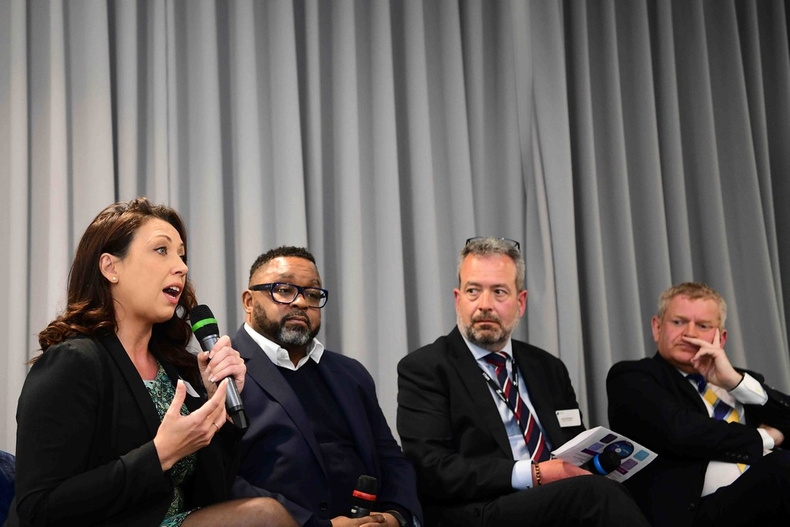GTP22: Greater representation is an opportunity, not a 'challenge '

Attracting, retaining and championing marginalised talent was high on the agenda at yesterday 's Growth Through People conference, the culmination of a month-long campaign led by Greater Birmingham Chambers of Commerce (GBCC), writes Claudia Congrave.
There were conversations at Eastside Rooms around leadership and workplace culture posing important questions about why so many businesses regard diversity as a challenge, rather than an opportunity.
Businesses and individuals from across the West Midlands gathered together to hear from industry experts on responsible leadership, accessing and engaging talent, unlocking potential and harnessing resilience as key themes throughout the campaign.
Reflecting on lessons learned during the pandemic, discussions quickly turned to the region 's position on racial equality, particularly in light of the impact of the Black Lives Matter movement following the murder of George Floyd in 2020.
Guest speaker at the conference, Yetunde Dania, tackled the topic during an inspiring reflection on her own path to becoming head of office at Trowers & Hamlins, a position she says she still “pinches herself ” about as a Nigerian woman raised by white adoptive parents in Great Yarmouth.
Despite her pride, Yetunde admitted that she hasn 't always felt comfortable as a black woman in senior management, commenting that she didn 't always feel visible or saw herself as “just a tick box or the black girl in the corner. ”
With West Midlands being the most ethnically diverse region in the UK after London, Yetunde explained that she is motivated by the opportunity available to the city to lead by example when it comes to ensuring that ethnic minorities are welcomed and visible in management positions across all sectors, work that she intends to spear-head as she leads the West Midlands Combined Authority 's (WMCA) Race Equalities Taskforce.
She questioned: “If we can still get businesses from A to Z, why does it matter that the journey might look more colourful or more diverse? ”
Diversity and inclusion provoked thoughts among attendees and speakers for the duration of the conference, hearing from some of the region 's most renowned businesses and organisations, including Aston University and St Basils, about their approach to equal opportunity and better representation.
Sian Dhillon, senior business and communities executive at St Basils, was particularly passionate about businesses better serving the communities around them and was vocal about why “reaching out to under-represented individuals isn 't a 'challenge ', it 's an opportunity. ”
She said: “A lot of companies approach diversity and inclusion as one concept, rather than in tandem. But they are different, and we should tackle them in that way. What we should also be doing is treating diversity and inclusion as integral priorities, just like we do with things like health and safety. ”
“I often hear people saying 'isn 't it about who 's the best fit for the job? ' I actually think that businesses who do well don 't have that approach. The approach should be about who you can help develop and give opportunities to out of those who would have otherwise been disadvantaged. Ultimately, we have to empower people to be able to do the job. ”
Embarking on a 'RACE Equality Code ' assessment with Karl George, head of Governance at RSM, the GBCC are already assessing how they can better support and reflect the communities and businesses they represent, both internally and externally.
As Mr George so poignantly concluded during his speech: at the conference, “We are now in the third generation of diversity. Diversity has now gone past 'nice to do ' and 'tokenism '. ”
Pictured: Sian Dhillon (St Basils), Karl George (RSM), Richard Billingham (Aston University) and David Gaughan (West Midlands Combined Authority)
